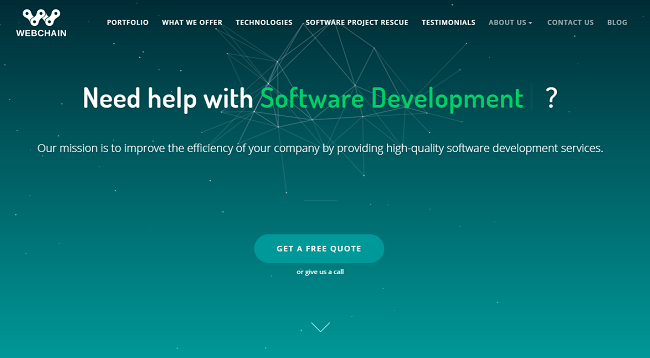PHP is favored in the web and software development world, and for many reason. The platform is robust and ready to provide users with rich and unique solutions. However, exploiting the advantages of this platform is not something to be taken lightly. If you want to do it right, you must hire a proficient PHP developer.
Over the last couple of years, PHP development companies have been experiencing unprecedented growth. Due to the increased number of amazing PHP tools, as well as the upsurge in talent in the field, the number of companies that offer such services has reached thousands. This makes finding a great one a real challenge.
To assist you in solving this, we have created a list of the 10 best PHP development companies who render quality services and offer solid pricing.
Webchain

Our mission is to give each individual or business the same resources and tools that larger companies enjoy. All of the efforts and services are geared towards growing the client’s business. Webchain helps customers grow their business with web, mobile application development and devops services.
Continue reading “10 Best PHP Development Companies to Watch out For in 2020”